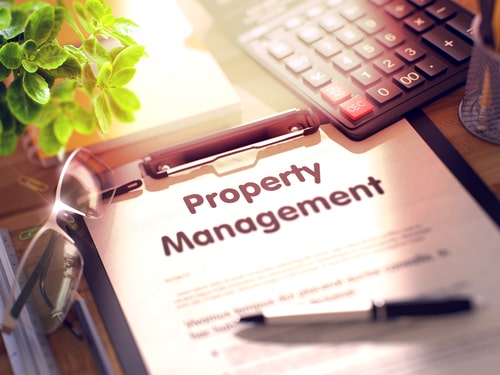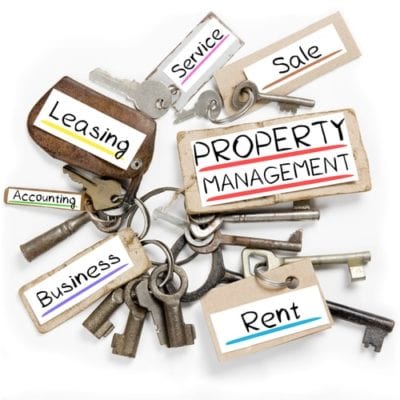
In theory, anyone could become a landlord. However, renting your investment property legally and successfully takes time, effort, and local knowledge. For many investors, the benefits of qualified property management services speak for themselves. After all, not every investor is prepared to organize repairs, comply with local laws, prepare marketing, or field those late-night maintenance calls. So, leaving the daily operations to a professional frees up valuable time while providing peace of mind to owners. Continue reading below as we walk you through what to expect when hiring a property manager for your portfolio.
 What to Expect When Hiring a Property Manager
What to Expect When Hiring a Property Manager
Hiring a property manager is about finding the best fit for your rental property portfolio based on how much you want to remain involved. For instance, some companies take over 100% while others still ask a lot of owners. That said, before you make a final choice, it is vital to understand the entire process your property will go through on the road to finding a tenant and beyond.
Everything begins with onboarding your property, but in some cases, that is where the similarities end, as each firm will handle your property differently. Bay Property Management Group specializes in a full-service approach to rental management and is with you every step of the way. Let’s take an in-depth look at the stages of the property management process below.
Stage 1 – Onboarding to Preparing the Property
- Initial Inquiry – It all starts with a phone call, email, or online inquiry, and our Director of New Business jumps into action. They explain the services, fees, and requirements related to becoming a client as well as answer any specific questions owners may have.
- Property Analysis – After an owner inquires about our services, the next step is to set up a free, no-obligation rental home analysis. This is a chance for the property management firm to inspect the property for any potential issues and give the owner an idea of expected rental income and a timeline to market.
- Signing the PMA – Next to the lease, the property management agreement is the most important document for owners. That said, this contract outlines the roles and responsibilities of each party. Therefore, always read this document carefully and ask questions as needed.
- Repairs – If the property is unfinished or needs major repair, the Director of New Business may suggest completing these items before offering the unit for rent. Therefore, allowing renters to see a more complete and attractive presentation in a rental ad. That said, if the unit is rent-ready, marketing can begin immediately.
- Legal Compliance – Most states and local jurisdictions require landlords to complete compliance elements before renting their property. Typically, this may include a rental license or lead disclosures but will vary from location to location.
Did You Know? – Landlords in Arlington County, Virginia, must obtain a business license if they collect more than $10,000 in annual rent. That said, meeting local requirements is essential to avoiding fines and prevailing in court disputes. For more information about landlord-tenant law and requirements in Arlington, check out the county’s official website.

Stage 2 – Marketing to Move-In
- Meet Your Dream Team – Say hello to your new best friend! Once a property is in our system, it is assigned to a property manager, who will then reach out to say hi. Our dedicated property managers handle all of the day-to-day operations so owners can rest easy.
- Marketing – When a property is ready for market, the first step is to take good quality photos and assign a leasing professional. Then, using the latest technology, leasing agents post the rental listing across multiple outlets to maximize exposure. Owners receive an update each week from their leasing agent that reviews leads, showing feedback and the number of applications.
- Tenant Screening – Comprehensive applicant screening is essential. Typically, rental qualifications include – income verification, background screening, credit check, rental history, and reference checks.
- Final Repairs and Cleaning – The property manager works to finalize any outstanding minor repairs and schedules the home to be professionally cleaned before move-in.
- Lease Signing and Move-In – Signing a legally binding lease is the most important step in the rental process. Your leasing agent will ensure the tenants understand their obligations and all paperwork is signed by moving day. Furthermore, the agent completes an inspection of the property to document the move-in condition thoroughly. This is essential for determining wear and tear or damage at the end of the lease term.
A Note About Fair Housing: Fair Housing Laws protect individuals and families from housing discrimination based on several protected classes. Additionally, it protects against harassment, retaliatory eviction or behavior, threats, and exclusionary advertising in rental ads. Therefore, hiring a property manager and firm familiar and compliant with all of these regulations will help avoid costly disputes.

Stage 3 – Ongoing Management
- Rent Collection – Hiring a property manager means they take care of collecting the rent and disbursing funds to owners. Additionally, if the tenant does not pay, property managers will take the necessary steps to begin eviction proceedings following all state and local laws.
- Accounting Services – Whether it is processing payments, accessing late fees, or providing essential tax documents, full-service accounting is a key part of successful property management.
- Owner Reports – Using the latest technology, owners can log on to their Owner Portal and view real-time updates on rent collection, outstanding invoices and access important documents.
- Maintenance – Property managers assist tenants with maintenance concerns as well as any emergency issues that may arise. Additionally, the property manager will work with owners to coordinate preventative maintenance to keep major systems functioning at their best.
Why Choosing the Right Property Management Company Makes All the Difference?
When hiring a property manager, it is important to remember that not all companies are created equal. While some owners choose to go it alone, hiring a property manager can be effective.
 For many, this is a way to grow your rental business and ensure the job is done right. Check out a few of the benefits to professional rental management below –
For many, this is a way to grow your rental business and ensure the job is done right. Check out a few of the benefits to professional rental management below –
- They Know the Market – The right property management firm knows the local market inside and out. This, allowing them to efficiently and aggressively market to find the best tenant.
- Thorough Screening – Screening is a landlord’s first and best defense against problem tenants. Therefore, using the resources of a property management firm helps owners screen applications while complying with all Fair Housing regulations.
- Eyes and Ears on Your Property – For landlords who are not local, keeping up with property maintenance can prove difficult. However, having local representation means even the smallest things do not fall by the wayside.
At Bay Property Management Group, we make owning your investment property the simple and profitable endeavor it should be. Our dedicated team streamlines the process while keeping owners informed every step of the way. If you think hiring a property manager in Arlington is a good fit for your portfolio, look no further than the local experts you can trust – Bay Property Management Group. BMG offers full-service property management throughout Northern Virginia, DC, Central Maryland, and Pennsylvania.

 What to Expect When Hiring a Property Manager
What to Expect When Hiring a Property Manager